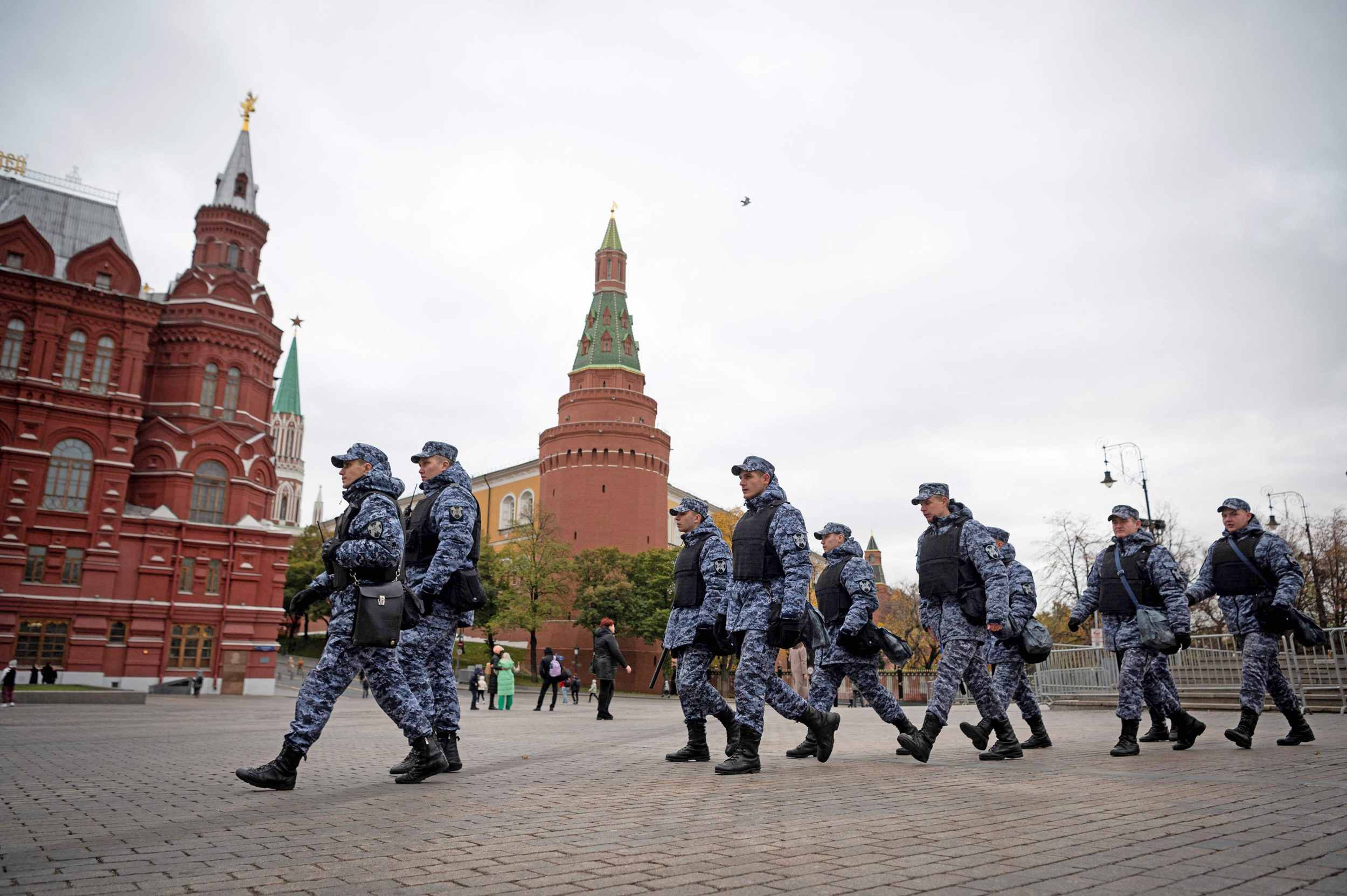
Russia is withdrawing its “peacekeeping forces” from Azerbaijan’s Karabakh region and from the Armenian border. They are no longer needed because the advantages that Moscow gained from a frozen conflict in the South Caucasus could only be maintained for as long as the conflict continued. With Armenia and Azerbaijan moving toward a peace agreement and looking westward to help develop their economies, Russia is losing its most important leverage in this strategic region linking Central Asia with Europe.
The Armenian-Azerbaijani conflict remained frozen from 1994 to 2020, and during this time it was Moscow’s greatest tool of influence in the South Caucasus. It enabled Russia to engage in a divide and rule strategy and minimize Western engagement. Russian peacekeepers also patrolled Armenia’s external borders, in effect ensuring that it remained a captive state inside the Collective Security Treaty Organization, the equivalent of the communist, anti-NATO Warsaw Pact.
When Azerbaijan recaptured Karabakh and other occupied districts from Armenian forces between September and November 2020, Russia did not defend its CSTO ally, and its influence in the region atrophied. Once Baku and Yerevan began the process of forging a peace deal, it made the Russian presence redundant. For Moscow, this was unacceptable, especially as Armenia’s Prime Minister Nikol Pashinyan, who won election in 2018, has been intent on steering Armenia out of the Moscow orbit and toward the West.
In retaliation, Moscow has supported domestic opposition to Pashinyan and has already attempted to overthrow him. Aware of the ever-present Russian threat, Yerevan is now proposing a full withdrawal of all 3,000 Russian troops from their remaining military base in Gyumry. This military contingent has also been used as leverage against Azerbaijan, mostly to threaten the nearby Ganja Gap that connects the energy and transportation corridor between the Black and Caspian Seas. They are also an additional source of pressure on Georgia, which already has two of its regions, Abkhazia and South Ossetia, occupied by Russia.
Fearing the loss of all influence in the region, the Kremlin is now attempting to play its last card by installing a puppet regime in Armenia. Just as it tried to prevent Ukraine, Georgia, and Moldova from integrating with Western institutions by supporting pro-Russia parties funded by loyalist billionaires, Moscow is using one of its proxy oligarchs to try to replace Armenia’s pro-Western prime minister and derail the rapprochement with Azerbaijan.
Billionaire Ruben Vardanyan spent much of his life in Russia, cultivated contacts with the Kremlin, and earned the nickname “Putin’s wallet.” He has been linked with massive money laundering for Moscow officials and is on Ukraine’s wanted list because his commercial links with Russia’s military “threaten Ukraine’s territorial integrity, sovereignty, and independence.” Vardanyan has also posed as a humanitarian philanthropist to try to whitewash his reputation. But despite the camouflage, the EU Parliament has demanded that sanctions be imposed on him.
CLICK HERE TO READ MORE FROM THE WASHINGTON EXAMINER
In 2021, Vardanyan took Armenian citizenship and was emplaced as governor of the separatist Karabakh region. When the region was recaptured by Azeri troops, he was arrested and charged with financing terrorism and creating illegal armed formations. Moscow claims he is being unfairly treated, and his surrogates have actually nominated him for a Nobel Peace Prize to secure his release.
In reality, Baku is performing a great service for Yerevan by imprisoning Vardanyan, as he has the resources and Russian security service connections to stir public unrest in Armenia and even stage a coup to install a pro-Moscow regime. If Vardanyan was to succeed, this could provide a model for dislodging other governments that are intent on breaking free of Moscow and forging closer ties with Europe and America.
Janusz Bugajski is a senior fellow at the Jamestown Foundation in Washington, D.C. His recent book is Failed State: A Guide to Russia’s Rupture. His new book to be published in the fall is Pivotal Poland: Europe’s Rising Power.

